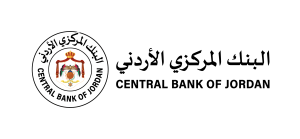Jordan and the International Monetary Fund (IMF) have reached a staff-level agreement on the third review of Jordan’s economic reform program supported under the IMF’s Extended Fund Facility (EFF). The IMF team, led by Ron van Rooden, concluded its visit to Amman on April 17, following two weeks of productive discussions with Jordanian authorities.
Pending approval from IMF management and the Executive Board, this agreement will unlock approximately US$130 million (SDR 97.784 million), as part of the broader US$1.2 billion (SDR 926.370 million) EFF arrangement approved in January 2024.

Program performance remains strong despite considerable external headwinds,” said Mr. van Rooden. “Jordan continues to maintain macroeconomic stability, and we’ve seen notable progress on key reforms.
Despite the challenging regional environment — including spillovers from conflicts in Gaza and Lebanon — Jordan’s economy remained resilient in 2024. Real GDP growth reached 2.5%, while inflation stayed low at under 2%. The government met its fiscal deficit target by implementing strong measures that offset losses from declining domestic demand and export prices.
The current account deficit widened slightly to 5.9% of GDP, mainly due to lower tourism revenues. However, a recovery in tourism and stronger domestic activity are expected to drive growth to 2.7% in 2025, with inflation hovering just above 2%.
The Central Bank of Jordan (CBJ) continues to safeguard monetary stability and remains fully committed to maintaining the exchange rate peg to the U.S. dollar, backed by robust international reserves. The banking sector also remains healthy, with high capital buffers and sound fundamentals.
Looking ahead, growth is projected to exceed 3% in the coming years, supported by major investment projects — including the Aqaba-Amman Water Conveyor — and potential economic integration with neighboring Syria, Lebanon, and Iraq.
Fiscal Discipline and Reform Momentum
The authorities reaffirmed their commitment to placing public debt on a steady downward trajectory, aiming to bring it to 80% of GDP by 2028. Fiscal consolidation efforts will focus on:
-
Expanding domestic revenue mobilization
-
Boosting spending efficiency
-
Ensuring the financial sustainability of public utilities and the Social Security Corporation (SSC)
At the same time, priority will be given to protecting social and development spending, especially amid high unemployment, particularly among youth and women.
Advancing Toward a Resilience and Sustainability Facility (RSF)
The IMF and Jordan also made significant progress in discussions around a possible Resilience and Sustainability Facility (RSF) arrangement. The proposed RSF would help Jordan address long-term vulnerabilities in the water and electricity sectors and bolster its ability to respond to health emergencies, including future pandemics.
Talks on this front are expected to continue in the coming days, with the goal of concluding them during upcoming meetings in Washington D.C.
A Strong Reform Agenda Ahead
The Jordanian authorities remain focused on advancing structural reforms to unlock stronger, more inclusive growth. Key areas include:
-
Enhancing the business environment to attract investment
-
Promoting labor market flexibility
-
Strengthening the social safety net
-
Streamlining regulations and digitalizing government services — especially in tax and customs administration
Productive Engagement and Next Steps
The IMF team expressed its appreciation to the Jordanian authorities for their open and constructive engagement throughout the mission. Meetings were held with Prime Minister Bisher Al-Khasawneh, Finance Minister Mohammad Al-Ississ, Planning and International Cooperation Minister Zeina Toukan, Economic Affairs Minister Nasser Shraideh, CBJ Governor Adel Al-Sharkas, and other senior officials.




